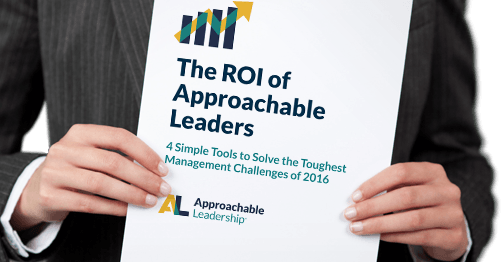Power Distance: What Leaders Can Learn from the Volkswagen Scandal
Volkswagen’s emissions scandal is a case-study in how power distance can kill a company.
It began in 1999 when new rules were established on how much nitrogen oxide could be emitted from exhausts on vehicles. The new rules phased in between 2004 and 2009. Around 2007 Bosch, a German engineering company, gave Volkswagen (VW) access to software that could rig the emissions test, but warned VW that it was for testing purposes only and not to be used illegally. VW ignored them and in 2008 started selling cars with the test-rigging software in the UK. They began doing the same thing in the US in 2009.
Things went well for VW until 2014 when a group of scientists at West Virginia University submitted a proposal to the International Counsel on Clean Transportation that ultimately got the attention of the EPA. And the rest is history.
The latest disclosure shows that the test-rigging software has been found in 85,000 vehicles, now including some Audi and Porsche models.
Analysts estimate the “actual eventual cost” of this scandal will land somewhere between $34 billion and $43 billion. Ouch.
When Martin Winterkorn, former VW CEO, gave his resignation speech in September 2015, he said:
“As CEO I accept responsibility for the irregularities that have been found in diesel engines and have therefore requested the Supervisory Board to agree on terminating my function as CEO of the Volkswagen Group. I am doing this in the interests of the company even though I am not aware of any wrong doing on my part.”
At the time, many struggled to believe that Winterkorn, the CEO, would not have known about a decision of this magnitude. However, in the time since, that fact has shown itself to be true. The question now is, “Is it Winterkorn’s fault that he didn’t know?”
Geoff Colvin and Ryan Derousseau gave their take in a recent Fortune article. From the article:
“Such large, far-reaching, long-lasting damage is rare. Its cause is becoming clear. Under former CEO Martin Winterkorn and former chairman Ferdinand Piech, VW developed a culture of declaring titanic ambitions and ruthlessly punishing anyone who failed to perform his assigned tasks in achieving them. When it became clear that VW engineers could not simultaneously meet targets for cost, fuel efficiency, and emissions, managers felt they could not tell the truth to their superiors. So they cheated.
VW’s leaders thought they were heroes for being so demanding. But forbidding bad news doesn’t mean there isn’t any. It only means the leaders don’t hear about it. And then it gets worse.”
Aside from the $43 billion (and likely more) this scandal is going to cost them, Volkswagen has completely tarnished their brand, severely damaged the economy of Germany, and set their employees up for decreased salaries and possible layoffs.
The Volkswagen crisis was caused by power distance.
Having high standards is great. And you can be a great boss and still be tough. You can be disappointed when stretch goals aren’t achieved. But you CANNOT be so tough, closed off and hard that your employees fear speaking up when they need to. That is a recipe for disaster.
Killing the messenger who brings bad news puts you in a bubble nobody will dare to enter. It creates fear, and people will do incredibly dumb and harmful things when they are scared – especially when they are scared about something as important as how they will provide for their families. As we discuss in our brand new Approachability Playbook, this fear works at a primal level. You literally trigger primal “flight or fight” reflexes that can lead to all sorts of bad behavior.
When you create the kind of fear that Martin Winterkorn and his leadership team created you can be certain that people aren’t telling you the truth. They are definitely hiding important information from you. Hopefully what your employees are hiding won’t cost your company billions of dollars or kill people. But rest assured, if your people are scared you are not getting the full story.
Here’s the hard part about power distance. You don’t have to be as threatening or harsh as Winterkorn and his team to have power distance. We all have it to some extent. Your job as a leader is to constantly be on the lookout for it. Where you spot it your job is to carefully call it out and make sure people know that you want and need them to tell it like it is. Even if the news is bad. Especially if the news is bad.
How often does your team bring you bad news? Do you ever have difficult conversations with your team? Are you always the one who has to bring things up, or do others on your team approach you when things are off track? If you sometimes feel like you are the last to know about bad news, you have a power distance problem.
All leaders (me included) have stuff going on with our team that we don’t know about. Power distance is a beast to overcome. That’s why it is so important to be constantly on the lookout for signs of power distance gaps and to close that distance as much as possible.
If you’re interested in diving into this topic a little further, watch my recent webinar on Recognizing Gaps with Coworkers. In it, I lay out specific actions you can look for to determine the level of power distance in your organization.
Have you ever had someone bring up a bad situation that had been going on a while that you had no clue about? How did you respond? Have you ever had a boss blame you for not keeping him “in the loop” about problems? Have you ever felt like your boss “killed the messenger” when you delivered bad news? Let us know in the discussion area below.











Trackbacks/Pingbacks